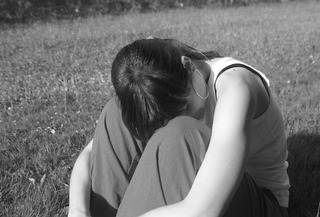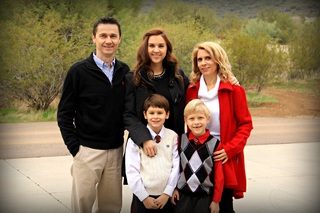
Isabella had big dreams in her luggage when she started out on her journey to Austria. Like many au pairs who come here, she had come from South America; her aim was to learn German during her employment, so she could go on to study in Austria. After a few weeks with her guest family, however, the cold truth began to emerge: rather than being a welcome guest, she was treated like cheap labour, and her rights were abused.
WHEN FIRST IMPRESSIONS ARE DECEPTIVE
As an au pair in a foreign country, you take on a wide range of roles. You are a child carer, teacher, employee and home help, all at the same time. It is often difficult to satisfy these different roles and to fulfil them all. For some, it is the most enjoyable time of their lives, when they are able to build valuable friendships and gain a second family – but for others, it is a living hell.
For the young women and men involved, it is often the first time they have ever lived abroad, far removed from their own families. Many hardly succeed in mastering the language, or not at all – making them vulnerable. As an au pair, you are dependent on how the guest family treats you. Even if the family has come across as sympathetic when those initial introductions take place via video meeting, first impressions can be deceptive.
Isabella had to endure a great deal. She was in her mid-twenties when she arrived in Vienna, and was forced to work twice as many hours as legally prescribed for her guest family. She was also verbally abused, and could seemingly do nothing right for her guest parents. After only a short time, the Colombian was suffering sleep disturbances and states of panic. When she eventually wanted to dissolve the contract with her guest family, they threatened her with all manner of consequences, and Isabella stayed – out of fear of losing her visa.
THE FRAMEWORK CONDITIONS
Although Austria offers comparatively good legal framework conditions for au pairs, there are some legal loopholes which can lead to exploitation. According to the Domestic Help and Domestic Employee Act, au pairs should not be allowed to work for more than 18 hours a week. For this, they should earn at least 500 euros gross a month, and even have a right to three more such monthly wages during a one-year stay. If the stay is shorter than this, these monthly wages have to be paid on an aliquot basis. As well as this, they have a right to free accommodation and food. Au pairs are responsible for looking after the children, and are only allowed to be used for “light assistance” in the household. Interpretations of what “light assistance” in the household actually means can turn out to be very different, however, as can the question of what appropriate accommodation is.

ALONE IN THE MIDDLE OF NOWHERE
In Austria, many au pairs live with their guest families in rural areas and do not have access to a car. That means they become extremely isolated, hardly able to do anything independently or create contacts with people of their own age. If the guest parents don’t integrate the au pairs into family events, it can rapidly lead to their becoming lonely, and homesick as a result.
Another problem is that the borders between work and free time rapidly become blurred for au pairs. While it may be lovely for an au pair to be present at family gatherings, for example, he or she may also be expected to keep an eye on the children at all times, so the parents can celebrate properly. Another possible scenario is that an au pair may want to relax and enjoy their day off, but the children want to play and never stop knocking on their bedroom door.
Au pairs often do not know their rights and obligations in sufficient detail, which can lead to uncertainty. Due to their lack of language skills, it is often not possible for them to inform themselves of these, or they are unaware of who they should turn to with their questions and problems.
KNOW YOUR RIGHTS AND OBLIGATIONS, AND COMPLY WITH THEM

Living as an au pair in a guest family, whilst simultaneously working for that family, is impossible to compare with any other job. As well as this, most people have extremely strong emotions when their children are involved. This often leads to conflicts.
It is crucial that both au pairs and their guest families are kept well-informed about their rights and obligations. Clear agreements and communication are the key to successful cooperation. Awareness needs to be created that au pairs are working people, and should be treated as such. The situation can only be improved over the long term through education and sensitisation.
DEFINE AREA OF RESPONSIBILITY
Essentially, the tasks of an au pair should be defined as clearly as possible. An au pair is allowed to help out in the household, but is not a cleaner. As well as this, au pairs are recommended to record their working hours themselves, even if this actually the job of the family.
“AU PAIR REPAIR”
Elizabeth and Paulina, two former au pairs, have created an initiative called “Au Pair Repair”. This is a platform for those affected, enabling them to network with one another and receive legal support. Misunderstandings are highlighted and solutions worked out using workshops, advice and documentation. Projects of this type are important for improving the situation of au pairs in Austria and creating awareness of their rights.
CONTACTS FOR AU PAIRS AFFECTED:
Arbeiterkammer Wien: arbeitsrecht@akwien.at
Au-Pair-Austria: office@aupairaustria.at
Au-Pair-Repair: aupairrepair@gmail.com
Translated by Tim Lywood
#Au-Pair #Familien #Ausbeutung #Rahmenbedingungen #AgainstHumanTrafficking #GegenMenschenhandel #EndExploitation #EndTrafficking #HopeForTheFuture #Österreich
